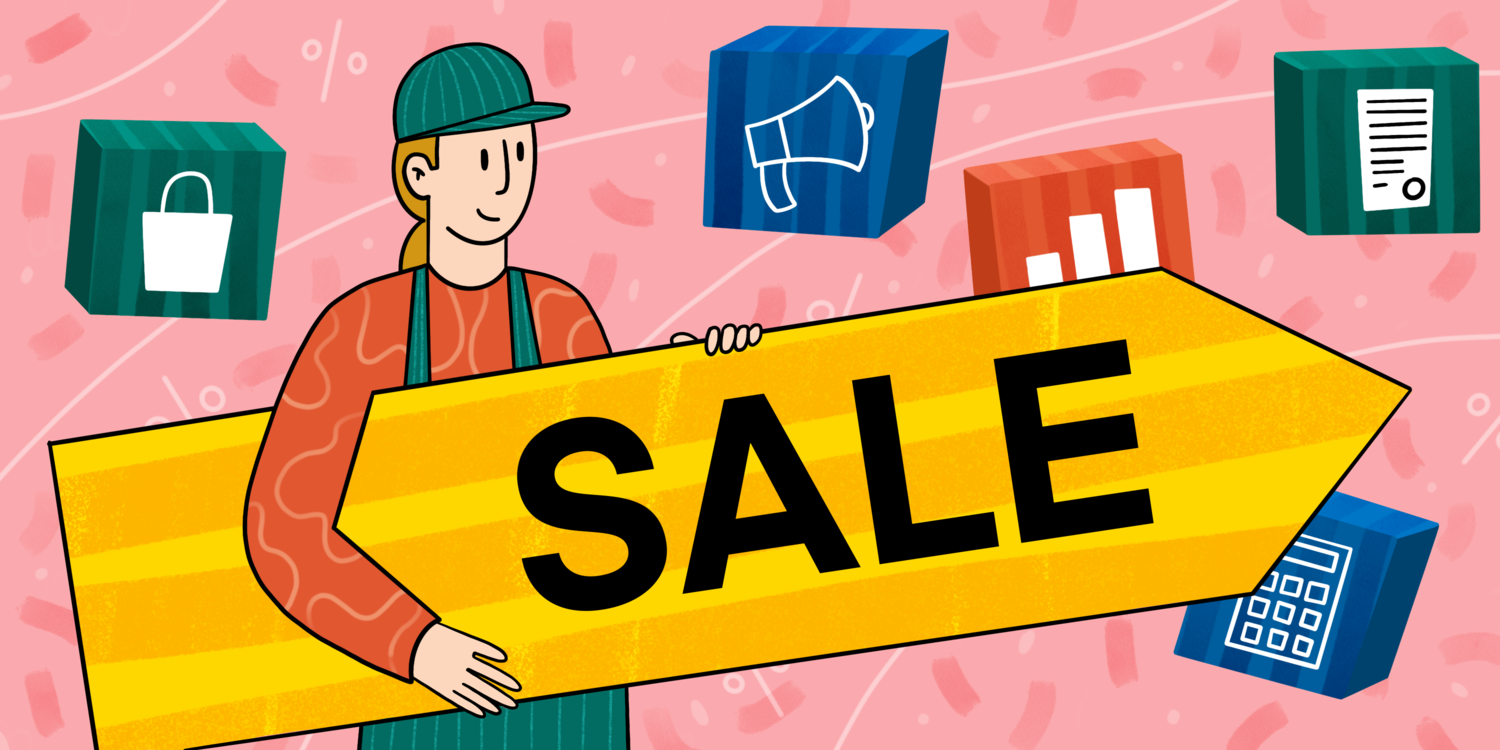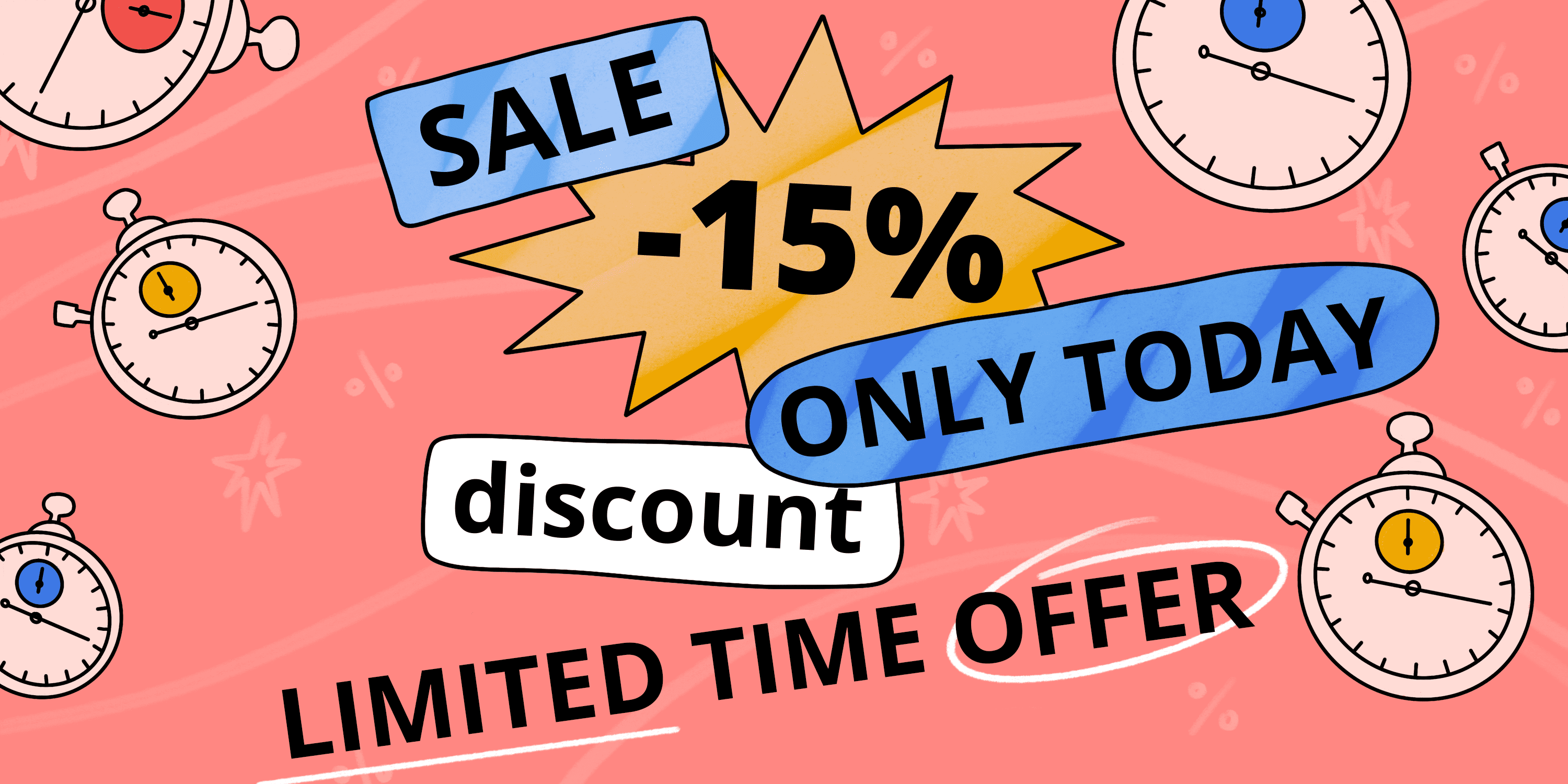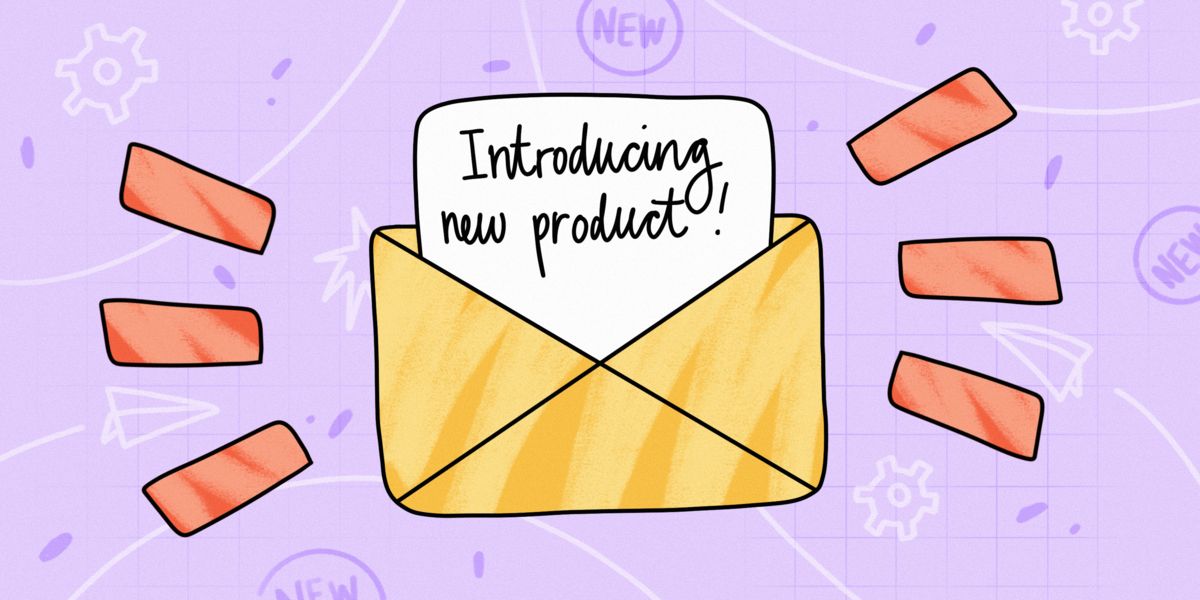If your revenue is growing sluggishly, and your sales team is struggling to generate leads, it’s time you include a promotion strategy in your sales plan.
Whether you’re growing a small business or launching a new product — promotions are one of the most effective ways to boost revenue. Don’t agree? A Gartner survey reveals a 49% increase in shoppers’ purchases because of online coupons.
Besides, when flash sales and discounts are becoming increasingly tempting for customers, no marketing campaign can match the immediate and sure-fire results of sales promotions.
Promotional strategies are about increasing demand by encouraging your audience to try your products or services.
Looking for inspiration? Here are eight sales promotion ideas and examples to help you boost revenue.
Let’s dive in!
Outline
1. Buy One, Get One Free (BOGO)
Everyone likes free stuff.
A ‘Buy One, Get One’ offer essentially capitalizes on this psychological tendency. By giving customers the perception of freebies, BOGO helps multiply sales quickly.
A ‘Buy One, Get One’ promotion is probably the most effective of all promotional strategies. For businesses, it’s best to clear out their inventory at a decent profit. But the true essence of a BOGO promotion lies in the double win it offers to both customers and sellers.
Using this promotional offer, you are sharing your profits with customers. In exchange, you get more sales and brand awareness.
Here are a few tips for creating a perfect BOGO marketing strategy:
- Choose the right set of products to ensure you are in a break-even position.
- Identify your target audience to promote the offer to the right people.
- Strategically choose the timing of your offer to bag more sales.
- Create a sense of urgency and tap on the customers’ fear of missing out.
- Provide ease of access to ensure your shoppers can avail it in big numbers.
Pro tip: Before launching a new sales promotion campaign, don’t forget to check email lists to ensure your emails hit the target.
And this is how Subway did it in the promotional offer below:
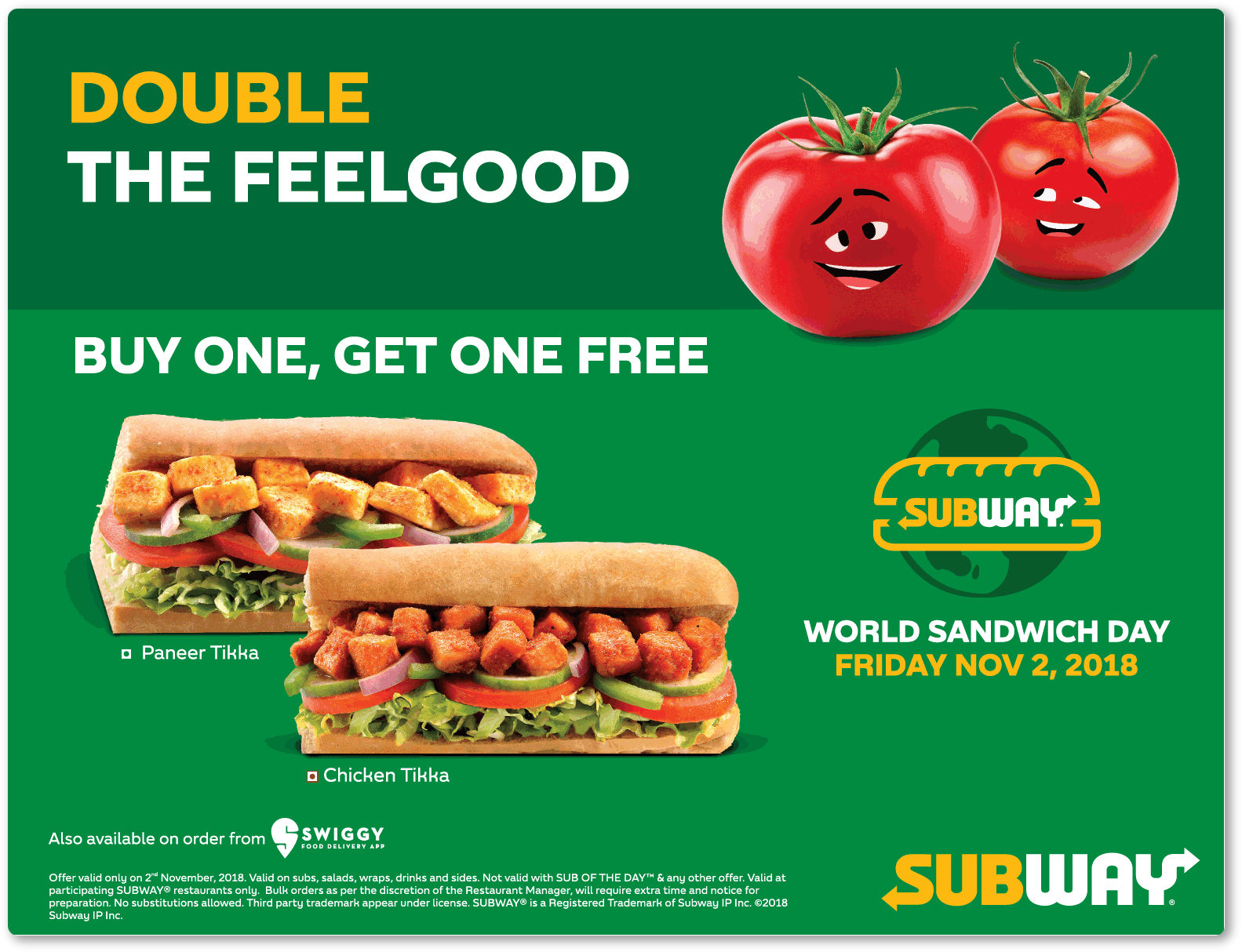
2. Free shipping, exchange, and returns
If you are running an online store, then your biggest problem is abandoned carts. Free shipping works like an automatic sales promotion and helps resolve this issue in a snap.
The idea of paying extra for shipping doesn’t sit well with many people. But if you make your way around it to offer zero shipping charges, you are in for a win.
Whether you add the shipping costs to the original price or slash it all together, zero shipping costs will undeniably increase sales.
It might also help to provide your customers with an optional moving cost estimator if they plan on relocating before they have received their ordered product.
Pro tip: Make free shipping conditional. Encourage customers to spend a certain sum to get free shipping for their order — the way Brandless offers free shipping for orders above $40.
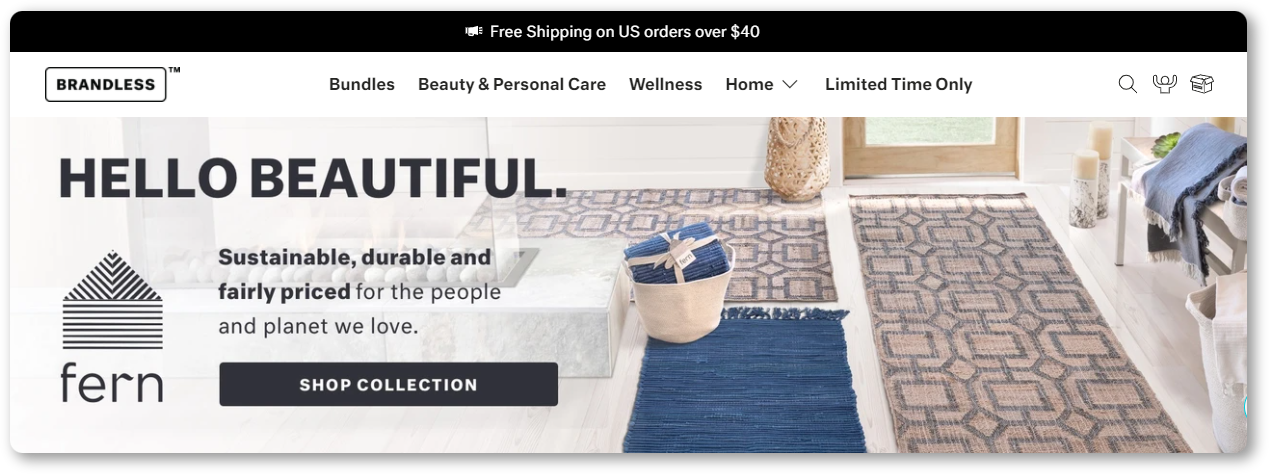
Besides, you can offer exchanges and returns at no extra cost and entice people to buy carefree and repeatedly. In fact, 95% of shoppers repeatedly buy from stores offering easy returns and exchanges.
And what is more, a money-back guarantee also works for software services:
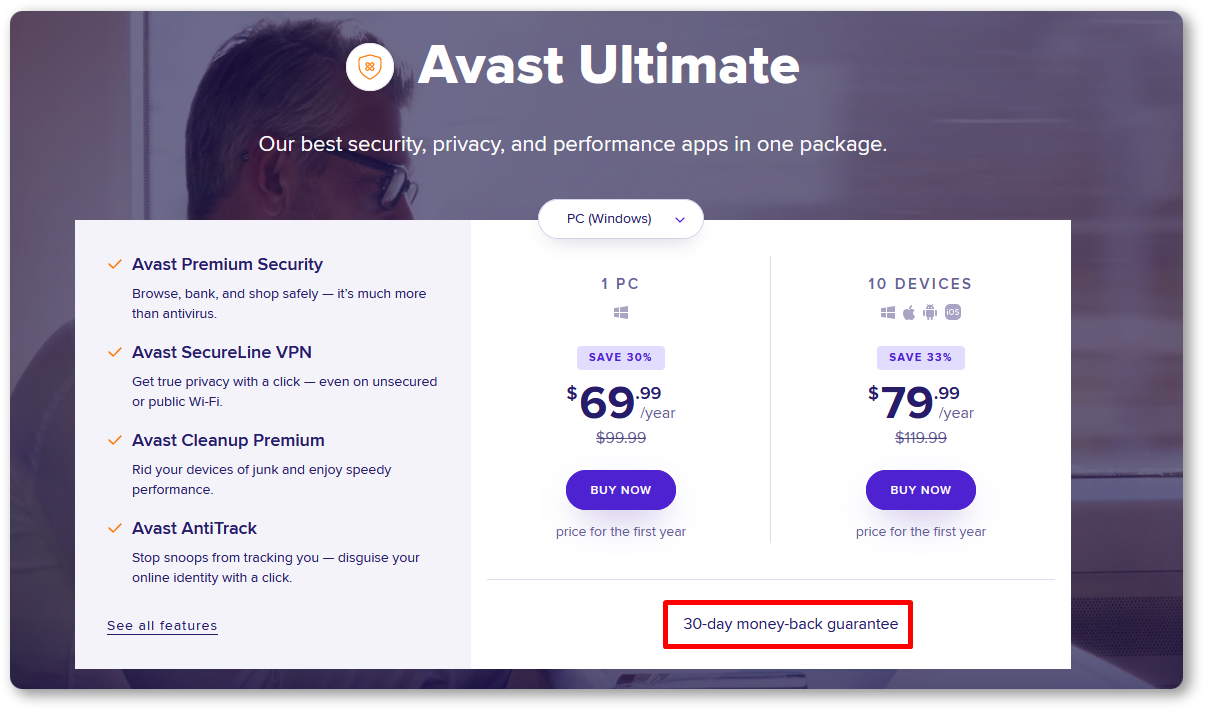
Promote your free exchange and returns policy on your website and social media to encourage more purchases.
3. Trial or sample period
Launching a new product or opening a new store means slow business in the initial days. However, promotions are a great solution to turn your sales up and succeed from the beginning.
While Costco first set the trend with free samples, many brands now offer a free trial or sample product. Here’s a look at Sephora’s free beauty samples section.
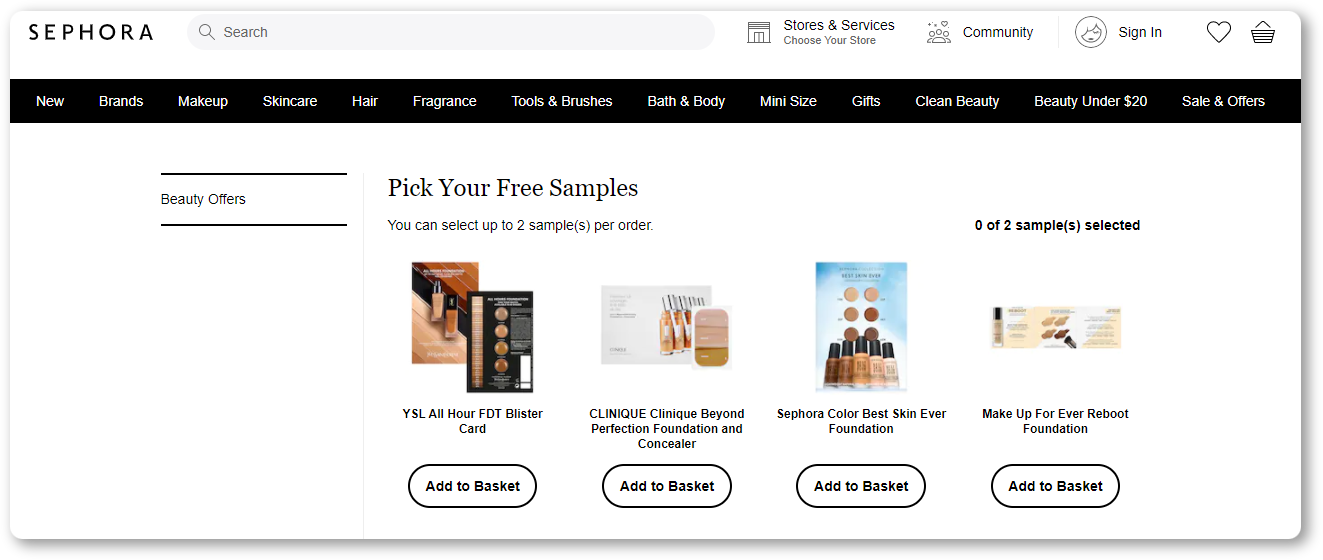
The brand allows its customers to choose any two samples per order. Sephora is confident people will come back to make more purchases given the quality of its products. This is the logic behind free sample promotions — give a gist into what you offer and lure customers in for sales.
If you are planning to engage in some free sample marketing, here’s how to do it right:
- Brick-and-mortar businesses: Create a sampling station in the store. You can also put some samples right next to the product’s setup. Offer some samples at the checkout counter.
- Online businesses: Give customers a free sample on the purchase of a relevant product. Add a trial box with the product(s) you want them to try on your website and in-between blog posts. Send emails about free sampling options in your store.
- Service businesses: A trial period or one-time trial works best for software solutions. In fact, the majority of companies that use free trials see a 10% increase in new sales.
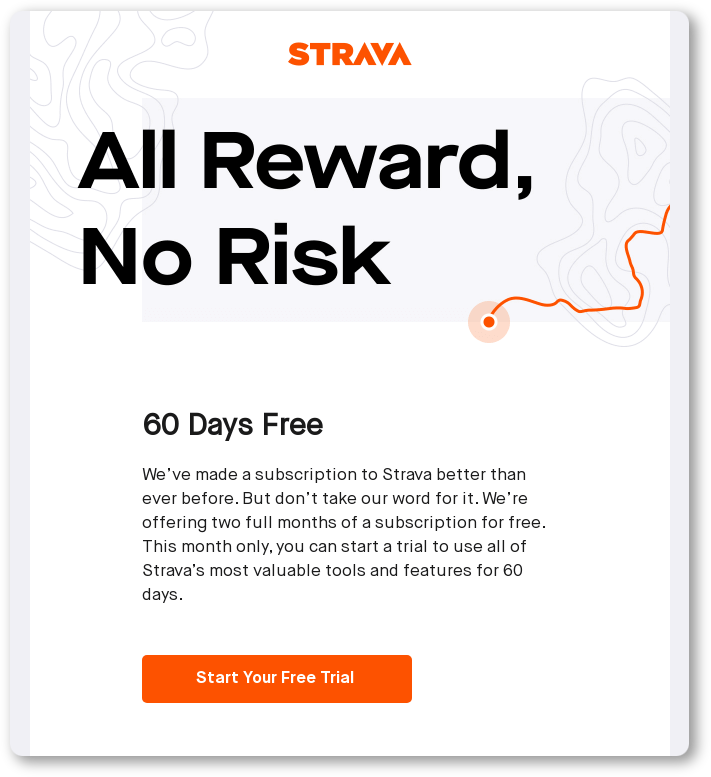
4. Seasonal discounts and sales
Promotions work brilliantly on occasions like Mother’s Day and seasonal events like the Christmas holidays. Everyone expects to find flash sales and bumper discount offers.
This is how Strikingly created its discount offer for the Easter holidays:
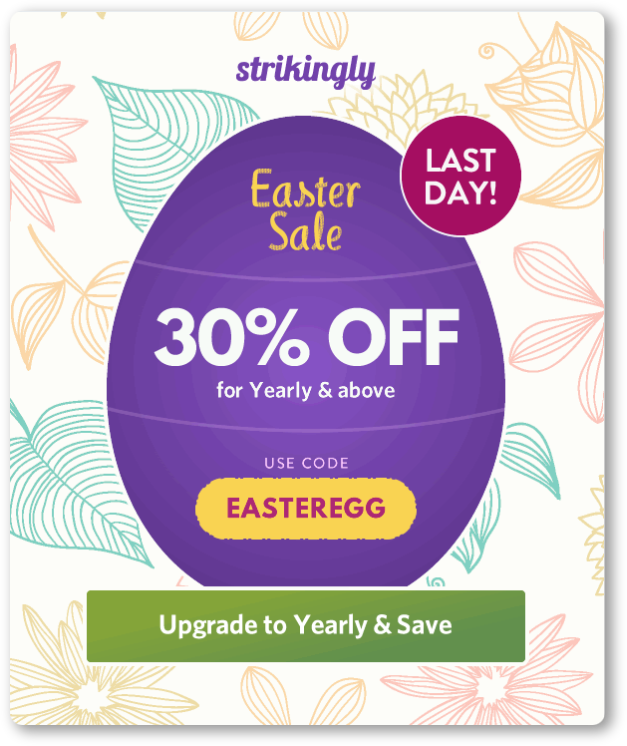
Besides, 30% of all sales take place between Black Friday and Christmas. This shows that the holiday season means promotions.
Percentage discounts are the best suited for these seasonal deals; coupons are another great option.
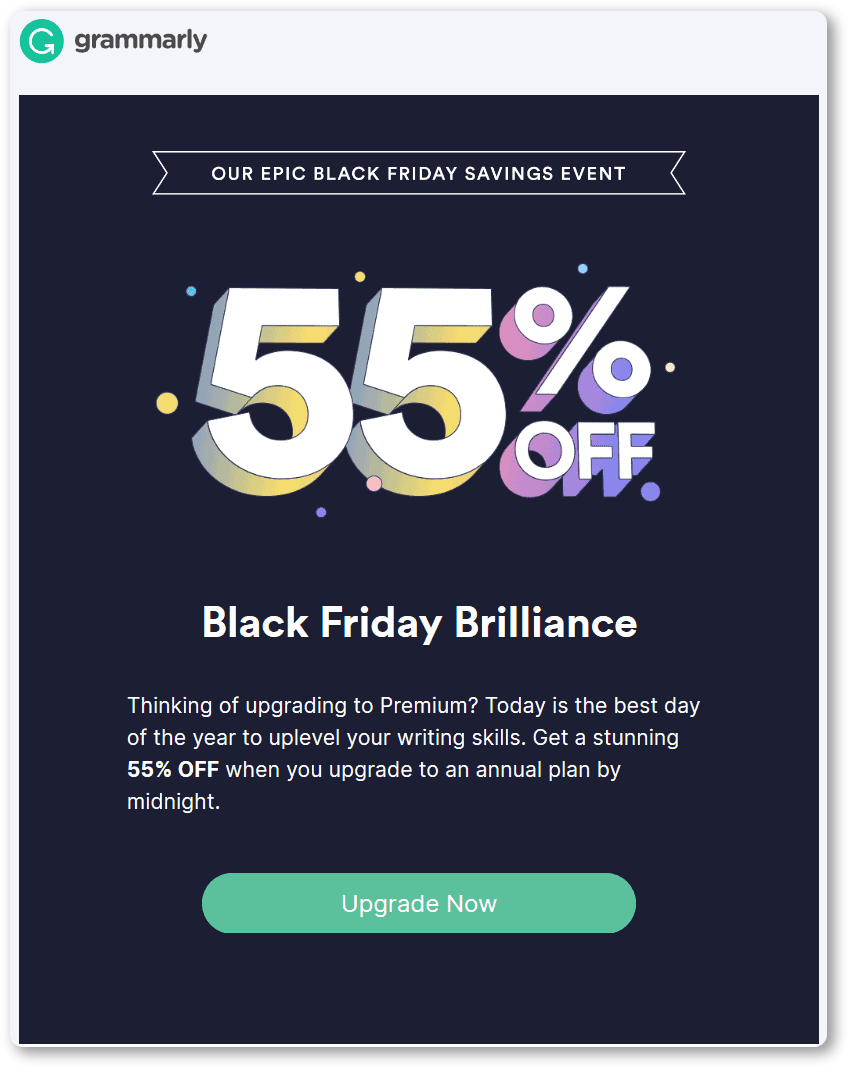
5. Referral discounts
92% of people trust a brand when a friend or acquaintance recommends it. This shows why referral marketing is a whole different ball game.
With referral discounts, you can hit two targets with the same arrow — get more sales and spread the word about your company.
Consider referral discounts as an inorganic approach to word-of-mouth marketing. But a full-fledged referral program works tremendously for getting more sales. Given that word-of-mouth marketing is a continuous process, a well-planned referral program will keep bringing leads.
Here’s what Dropbox’s referral program looks like:
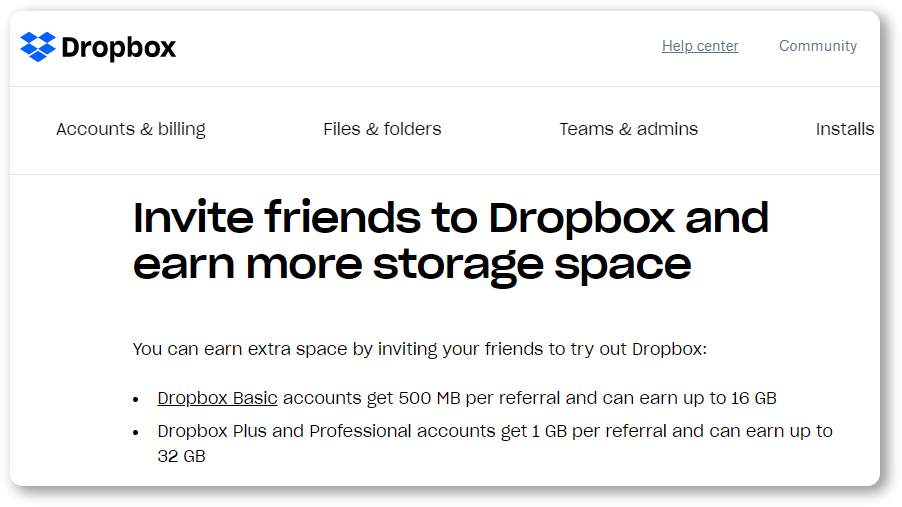
Building a referral marketing strategy requires time and effort. Here are some steps you can follow to simplify the process:
a. Study your target audience
Referral discounts will bring in the warmest leads. However, they should be in line with your offering as well. So, analyze your customers and find out how you can benefit from their referrals.
b. Design your referral program
Referral discounts are a double-edged sword. While they add a level of excitement for customers, they can quickly backfire if they don’t work. Make your referral program bulletproof with these few inclusions:
- Easily understandable rules
- Good benefits
- Simple eligibility
- Quick payout
c. Choose the right discounts
When fixing the value of referral discounts, remember that they should be desirable for the customer and affordable for your business.
6. Loyalty program
If you have loyal customers and don’t capitalize on their love for your brand, you are doing it wrong.
Loyalty programs are among the oldest promotional tactics. Closely connected with brand marketing, they aim to reward loyal customers with discounts and bonuses.
It works both ways — encouraging new clients to build brand loyalty and retaining existing customers, thanking them for their commitment to the brand.
But the true essence of a loyalty program lies in making the customer feel special.
Lancome’s tiered loyalty program is an excellent example.
The beauty brand offers three levels of loyalty benefits. You qualify for a different tier after making a certain number of purchases. The rewards and benefits, like premier access, early sale access, and free shipping, also vary.
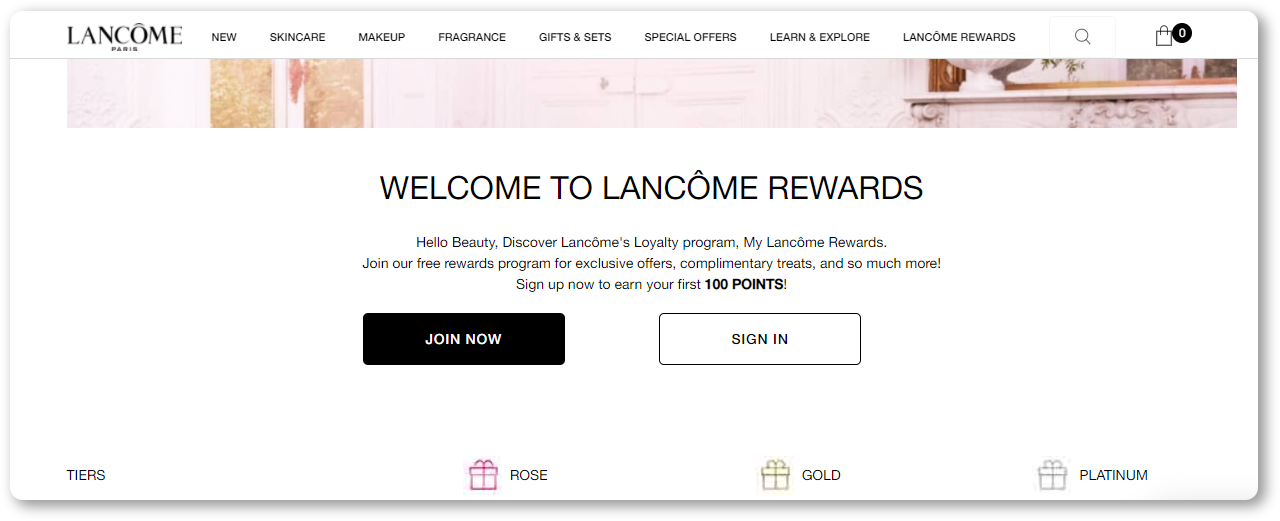
A customer loyalty program is a long-term promotional tactic and is also a great way to win back lost customers. While it doesn’t ensure immediate results as significant as a seasonal sale, it works in the long run to boost brand identity.
Here’s a set of tips to help you build your customer loyalty program and avoid common mistakes:
- Pick a name. Start with naming your loyalty program. It’s great to have some value and meaning attached to it. The name will create curiosity and encourage people to find out more about the program.
- Choose reward actions. For a loyalty program to work, you have to define which customer actions qualify their loyalty. Whether you are building tiers or simply a loyalty group, identify actions that will drive sales and reward your clients.
- Get creative with rewards. Discounts act as a major motivation for customers to participate in a loyalty program. However, loyalty programs like LyftUp are unique. It allows riders to collect their reward points and donate the savings to a charitable organization. Additionally, programs like LyftUp can help streamline the donation process for charities, making it easier for them to accept donations online and express their gratitude with a thank you for donation letter.
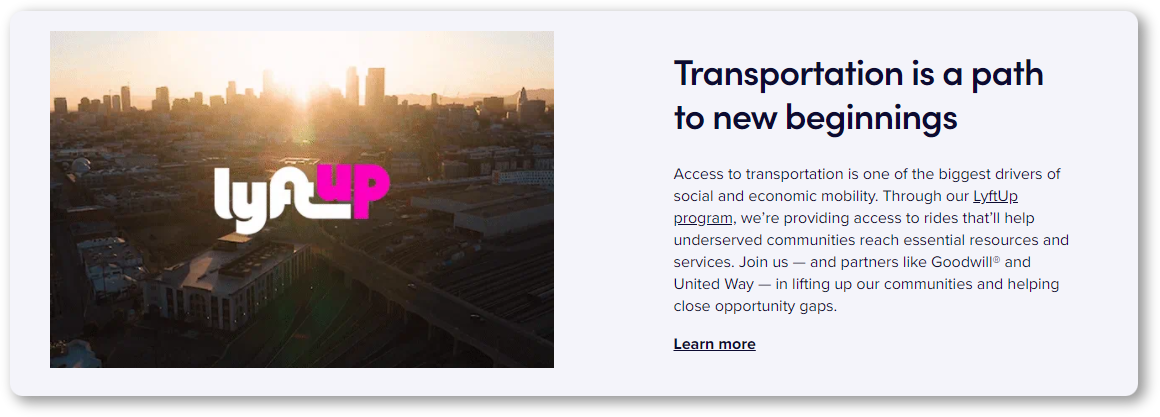
- Promote your program. Let customers know about your loyalty program. Existing, new, or potential — every customer should know about its perks. Use marketing channels like social media and emails to spread the word.
7. Social media giveaways
Social media is a brilliant way to brand and market your business. But it also helps boost sales through promotions.
A social media giveaway presents the ultimate opportunity to increase engagement and sales.
Let’s look at how Lifebox Food collaborated with Punks and Chancers to execute this sales promotion strategy:
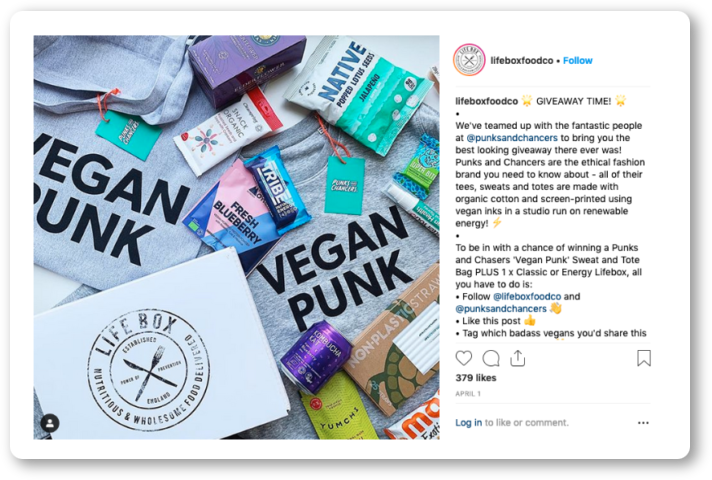
- For starters, both brands shared a similar target audience — health and fitness enthusiasts.
- The contest offered the audience some desirable rewards.
- The rules were simple to understand and easy to follow, leading to maximum engagement.
A great giveaway like this one creates hype around your brand. So, even if a few people get the product or service, you are essentially encouraging several others to:
- Spread the word about your company
- Take a keen interest in your offering
- Potentially buy your products or services
If your business is just starting, you can also combine your giveaway idea with influencer marketing. Ask key social media influencers in your niche to host a giveaway on your behalf and encourage their followers to check out your brand.
Passion Planner’s giveaway with Celine Reads is a great example of this method. The brand teamed up with an influencer with a decent Instagram following to promote their latest campaign. This way, they reached the right audience.
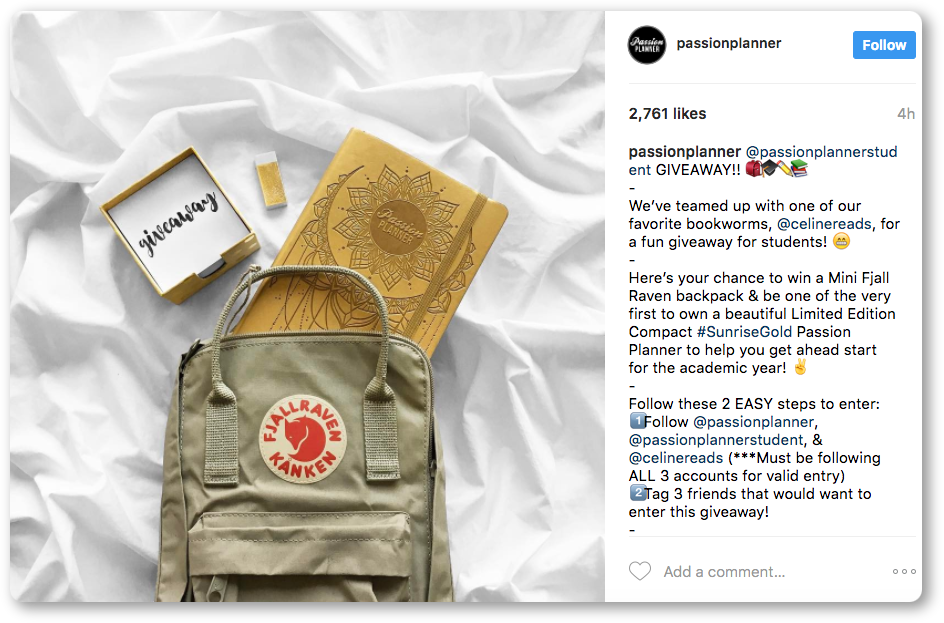
8. Gift vouchers
This is the ultimate sales promotion tactic carried forward from one brand generation to another. 90% of shoppers love coupons!
With hyper-targeted marketing campaigns, offering personalized gift vouchers can drive your sales. It’s an advanced version of seasonal discounts. A customized coupon works best to make your customers feel special and excites them to buy more.
Vouchers act as a gesture of gratitude as well. You can add a gift voucher while packing a customer’s recent order. Besides, you can also reward your existing clients with some gift coupons in their emails, just like Uplers did:
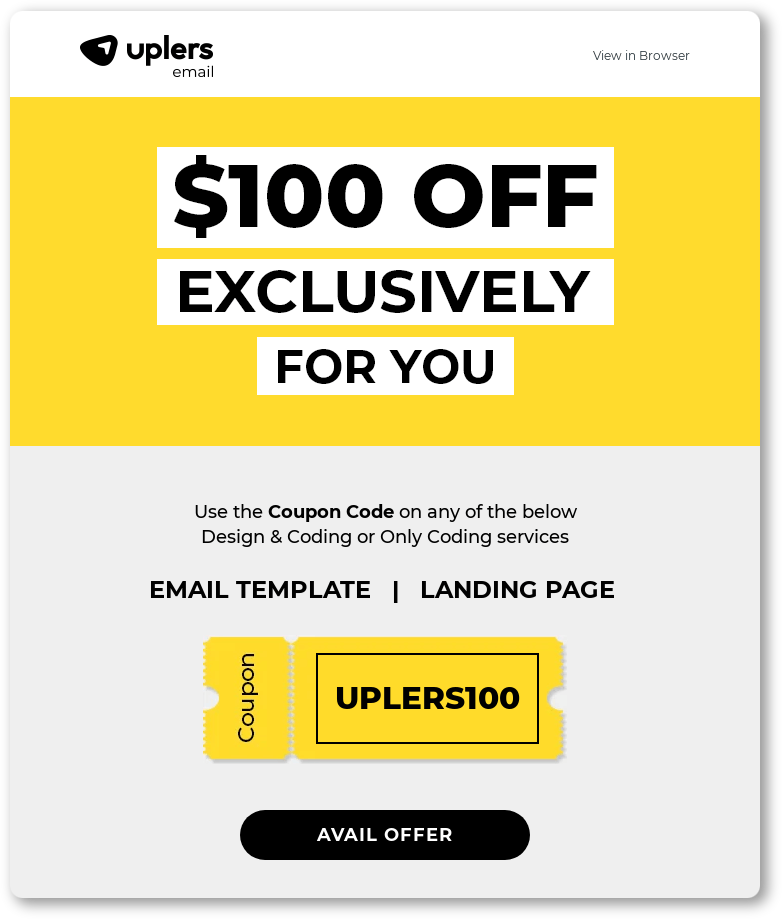
On the other hand, Bed Bath & Beyond offers vouchers and coupons in many ways. You can find coupons via email or text. They also send vouchers via post to redeem online or in-store.
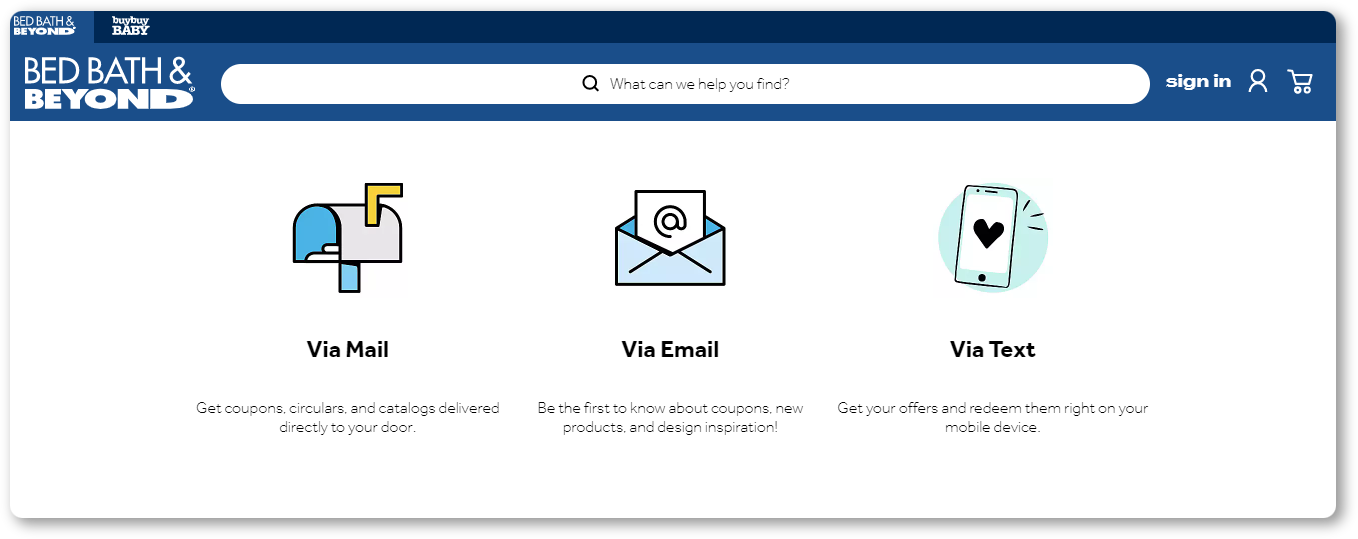
Ultimately, a gift voucher campaign comes with multiple benefits. It can help boost sales and build a subscriber base for your email marketing efforts.
Wrapping up
Boosting your sales is no easy task. It can seem even more challenging if you don’t have some effective sales promotion tricks.
Promotional tactics help get both immediate and long-term sales.
More importantly, a promotional strategy’s most significant benefit is the awareness it creates about your business. Not only do promotions multiply sales, but they also generate significant buzz around your brand.
While applying the tactics discussed in the blog, remember to use persuasion. Drive greater conversions for your offer by persuading the customer that they need to use your discounts. Add a sense of urgency and fear of missing out to maximize the results. Besides, you can use long-term practices like referral and loyalty programs to build a customer base for your brand.
And if you want to boot your business even further and get more leads, try Snov.io’s LinkedIn automation tool for lead generation.
